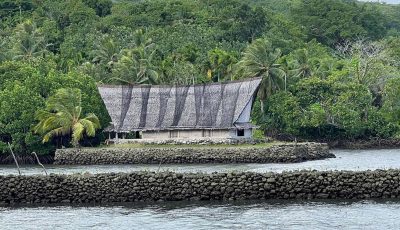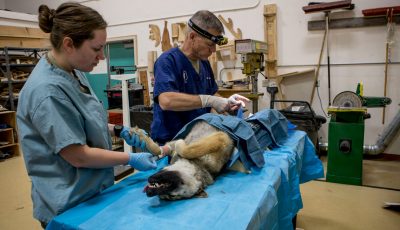BECQ hones in on non-point source pollution
To further address non-point source pollution, the Bureau of Environmental and Coast Quality recently performed low volume roads training with personnel of the Division of Coastal Resource Management.
Janice Castro, acting division director, said that non-point source pollution, or NPS, is a concern worsened by heavy rainfall and man-made pollutants carried to coastal areas by runoff.
“Low volume roads, which are often unpaved and typically transport less than 1,000 vehicle trips daily, often receive less attention in design and maintenance but are a primary source of nonpoint source pollution, which poses risks to the coastal environment,” Castro said.
Castro said that NPS affects groundwater and surrounding beaches, that low volume roads are also connected to residential areas and farmland where fertilizer, animal waste, and construction debris are interconnected.
“To address this challenge, trainings were held on Saipan and Rota, with the first day focusing on theory and the second day spent assessing road design and maintenance opportunities in the field. We hope to continue to hold interagency knowledge exchanges and continue the momentum to identify and address low volume road management challenges moving forward,” Castro said.
According to acting BECQ administrator Ray Masga, public advisories on water quality have been consistently monitored since the 1980’s.
“The Division of Environmental Quality analyzes water samples collected from Saipan’s west coast recreational beaches and storm drainages…every Tuesday. Samples collected are assessed for concentrations of fecal indicator bacteria (enterococci) that exceed the CNMI Marine Water Quality Standards. These bacteria can indicate the presence of human and animal waste in the water. However, studies have shown that storm water runoff in tropical environments may also contain these bacteria from the natural environment, which may not be directly associated with public health concerns. Even though non-point source pollution can’t be pinpointed to a single cause, we see that mitigating NPS from low-volume roads is needed,” Masga said.
The trainings were also attended by the Saipan Mayor’s Office and staff from the Department of Public Works of Saipan, Tinian, and Rota.
“Addressing non-point source pollution is a very important step in safeguarding our coastal resources. We know that runoff has a direct impact on the health of our beaches and marine life. Our water quality monitoring has improved but low-volume roads have been an ongoing concern. Through this collaboration, we hope to improve road construction and engineering especially in terms of erosion control which has been overlooked in secondary road construction,” said Gov. Ralph DLG Torres.



























